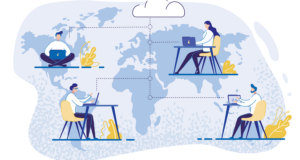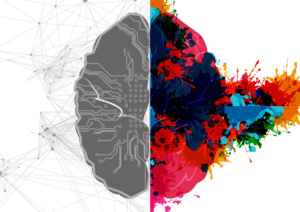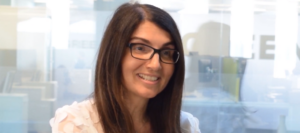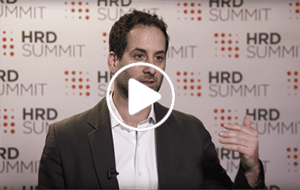Organisational change in times of digital transformation
- 5 Min Read
HRD Connect spoke to Dr Julie Hodges of Durham University Business School to hear her thoughts on organisation change, digital transformation, and how this can impact culture.
- Author: Louron Pratt
- Date published: Jun 12, 2019
- Categories

Technology and organisational change go hand in hand, for companies to adjust to technological advances, it is becoming ever more essential for business leaders to adjust their models and their culture to reap the benefits of digitisation.
To find out more about these changes in digital transformation, HRD Connect exclusively spoke to Dr Julie Hodges of Durham University Business School. Julie is Associate Professor of Management and Associate Dean for the School’s MBA programmes. She’s a leading expert on managing change in organizations, particularly regarding the impact on roles and people during transformations. Digital transformation is a key part of this. Here’s what she had to say..
What is your view on the increasing reliance on technology in organisations?
Technology change can be uncomfortable, and there are lots about how it is destructive. But also, I think it’s important to look at the benefit too. It can enhance the interaction between customers and employees. It also improves management decisions by enabling organizations to have access to improve their big data and information from the Internet of Things. And it’s also creating new business models. We hear much more about things like crowdsourcing, for example. But in order to achieve these benefits, organizations need to look at what are the capabilities that they require in their organization. Technology needs to be embraced in a positive way, rather than seeing it in a way that is going to be negative and destructive. And that’s why it’s important to look at in terms of the business models that organizations need, and rightfully the capabilities the employee needs, as well.
How important is it for companies to adjust their business model in times of change?
Business models are changing the traditional definition of what an employee is. We are seeing, I think the impact of more fluid employee opportunities arise. And we see that in companies like Uber, for example, they’re flattening organizational structure, as the employees are more freely able to access all levels of the organization in comparison to the traditional hierarchical organizational structure where it was much flatter.
Can technology impact culture?
The increasing use of digital platforms helps connect that broad range of ideas from people across the globe. So it can help to look at providing solutions that can provoke creativity but also using people from across the globe as well.
However it is important that’s done in a way that is positive. Microsoft has introduced hackathons where they bring together hundreds of people to look at how they generate ideas, it’s about doing things in a different way. It is about that crowdsourcing mentality that’s important.
Do you feel like leaders need to be more conscious of their workforce now?
Leaders always need to be mindful and conscious of their workforce. However the types of leadership are changing, so if you have a flat structure, then you need leadership that is much more shared leadership across the organization, rather than the traditional type, which is command and control. It’s much more about having a flatter, and a more shared distributed style of leadership, as well. What we’re seeing in incorporating digital technologies in the workplace, is not only resulting in a demand for new capabilities, but it’s also creating new rules related to digital innovation and specific technology. We’re seeing new rules coming into the workplace such as Chief Digital Officer, chief experience officer, and innovation manager who are helping to drive the transformation in organizations.
What are your thoughts and perspective on organizational change?
My perspective on organizational change is a people-centred approach. So the success of organizational changes in the global environment, which is there’s increasing volatility is highly dependent on the advocacy of stakeholders. And it’s about engaging stakeholders that are internal to the organization. So that’s the staff that frontline people that are doing the job, but also engaging stakeholders that are external to an organization, whether it’s no partners, supply chain operations, whatever that might be. So for me, it’s about engaging stakeholders, in order to ensure that I identification of what needs to change the implementation of what needs to change and the seniors as well, that’s important. What I’ve been looking at is about research is about raising awareness of the need to foster engagement with organizational change through a stakeholder perspective, and how this can be done successfully with organizations across the globe.
So what would you feel like is the most exciting aspect for this, this new world of work?
For me, it’s about the impact of technology on the workplace. I think so the workplace is being digitized on a global scale. And that is something that hasn’t necessarily been seen before. And I think it’s hard to think of any organization has not been touched by such trends with opposing fundamental challenges to organizing people at work. So I think about but you know, how do organizations adapt and survive, as well, that’s important, and the impact that will have on their business models too?
It’s also about how organizations are collaborating more because the structures that are changing are becoming more network structures.









